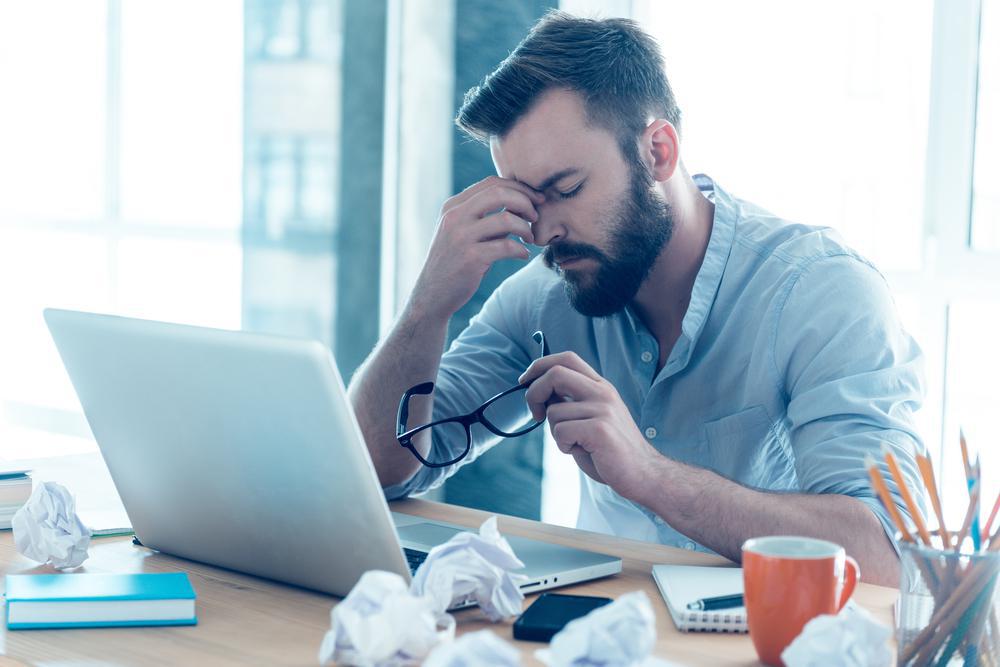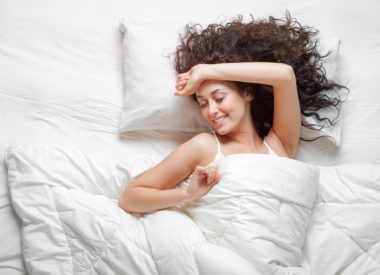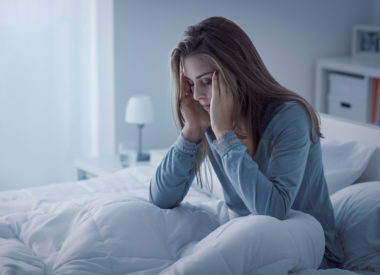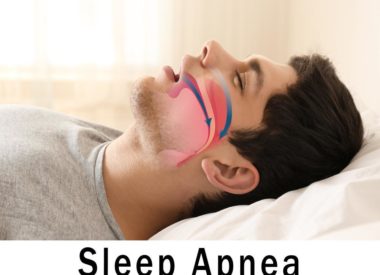Are you sleeping all the time? (Reasons, Causes and Solutions)
If this is not news to you, it’s probably because you join the millions of Americans suffering from sleep loss, which leads to problems with daytime sleepiness while at work, behind the wheel of a car, or going about the many activities of your day.
While insomnia may account for a good number of complaints about poor sleep, daytime sleepiness is not only the result of insomnia. In fact, many people go to bed every night believing that they are sleeping through their allotted 8 hours, only to discover they are still exhausted, even napping, during the day.
There are a number of reasons that could explain this: you have other medical conditions that contribute to your drowsy days, or you may take medications that contribute to your somnolence. Sometimes it’s a case of not practicing good sleep hygiene that leads you to troubles staying awake during the day. But commonly, it’s an unidentified sleep disorder that’s to blame for the sleepiness of literally millions of Americans.
Are you sleepy in Seattle?
Aside from insomnia, which is likely the most common sleep disorder worldwide, the second most common (and frequently undiagnosed) sleep disorders fall into the category of sleep-disordered breathing. This is where snoring and obstructive sleep apnea (OSA) intersect.
Snoring
It’s more common that people will admit. About 40 percent of men and nearly a quarter of women snore. Some snore lightly, but many snore very loudly and for long periods of time.
Snoring happens when passages in the upper airway are swollen, flabby, or oversized, creating vibrations as air is inhaled into the lungs.
Why is snoring a problem?
Snoring has a negative impact on breathing during sleep because it is caused by upper airway resistance; the added friction in the airway caused by loose tissues in the throat and mouth hampers the process of breathing.
Snorers may snort themselves awake, or if they don’t actually awaken, their snoring may pull them out of healing stages of sleep into more shallow periods which don’t allow the body to perform necessary cellular repairs.
This is one reason why snorers awaken feeling unrefreshed, with headaches, a sore throat, or a dry mouth in the morning. People who snore are more likely to be grumpy or depressed as well, for these reasons.
Snoring also has its casualties: the bed partners of people with very loud snoring may also suffer from sleep deprivation. The sleep deprivation of both the snorer and his or her bed partner sometimes even an entire household can result in stressful relationships and health problems for everyone involved.
Snoring is no small thing and needs to be addressed by a physician to find solutions and to rule out the presence of a more severe sleep breathing disorder related to snoring:obstructive sleep apnea (OSA).
Obstructive Sleep Apnea (OSA)
Snoring does not cause OSA, but it is a major marker of the presence of OSA, and the majority of people with OSA experience some kind of snoring. One fourth of all American adults suffers from sleep apnea, though these numbers are only estimates, as many people can have OSA without realizing it.
What is OSA?
OSA is a sleep breathing condition in which there are breathing pauses during sleep that are due to mechanical obstructions in the upper airway that lead to a partial or complete collapse of the upper airway.
A person with OSA may sleep normally, then begin to relax into a pattern of snoring, followed by more struggled breathing, coughing, gasping for air, or choking after periods of complete silence.
Witnesses who have seen their bed partners experiencing moderate to severe sleep apnea report it appears their loved ones are literally choking to death.
The respiratory system works with the brain to prevent this from actually happening by startling the person with sleep apnea awake as soon as their blood oxygen reaches an unsafe level. However, the person is now either fully awake, or only sleeping at a very shallow level. If left untreated, these patterns of obstructed breathing lead to patterns of broken sleep that can go on for hours.
Undetected sleep apnea sleep deprivation. Sleep deprivation contributes to a multitude of health and safety issues if ignored, including behavioral problems such as irritability, poor judgment, attention deficit, memory issues, emotional stress, poor risk assessment, and mood disorders.
Physical problems caused by sleep deprivation include clumsiness, physical stress, immune system dysfunction, worsened vision, weight gain, advanced aging, even cerebral shrinkage.
If these aren’t problematic enough, chronic health problems can also be the result of untreated sleep apnea. When the body is in a constant stress mode during the night, trying to maintain a healthy balance of oxygen in the bloodstream, this leads to organ stress and body-wide inflammation.
The relationship between sleep apnea and our biggest chronic health problems heart disease, stroke, diabetes, hypertension, cardiovascular disease, obesity, cancer is based on ample scientific research and evidence pointing to systemic inflammation. Now researchers are finding even more relationships between OSA and other health concerns, like chronic kidney disease, gestational diabetes in pregnant women, and issues with the eyes.
How can one be sure they have OSA? An overnight test ordered by a sleep specialist to measure respiratory issues and blood oxygen levels can confirm it. But there are plenty of other signs you can look for if you suspect you or a loved one has OSA:
- Problems with waking up frequently at night, or prematurely in the morning
- Waking up with a sore throat or dry mouth
- Excessive daytime sleepiness
- Treatment-resistant insomnia (sleep aids don’t seem to work)
- Frequent car accidents
- Episodes of loud snoring, choking, snorting, gasping, and lengthy pauses in breathing (more than ten seconds each)
- Morning headaches
- Unexplained rises in blood pressure
- Needing to use the bathroom several times a night despite a healthy urinary tract
If you or a loved one experiences any of these symptoms, it is important to bring them to the attention of a doctor; they will help you determine if an assessment is called for to identify (or rule out) the possibility of a sleep breathing disorder.
While the occurrence of sleep apnea is bad news, the good news is that, today, there are excellent options for treating it. The key is getting an accurate diagnosis from a board-certified sleep professional; they can help you breathe easy as you sleep by actively treating your OSA with the latest state-of-the-art therapies. These require prescriptions and come with ongoing patient support to ensure you have a successful outcome for your treatment.
Please reach out to us at Sound Sleep Health. We have 3 locations in the greater Seattle/Kirkland areas. Call us and Improve Your Sleep Today!



